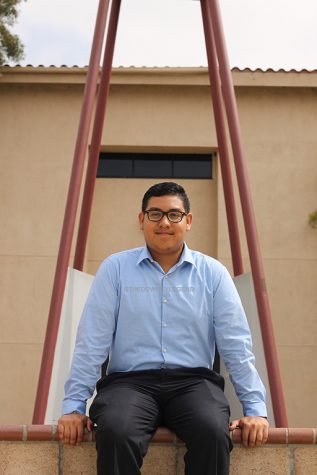The Psychology in Human Trafficking
May 17, 2019
On April 18, Downey High School was host to Dr. Laura Dryjanska and her team of graduate students who lead the event “Human Trafficking and Psychological Science”. The Stop the Traffick club organised the event for the Biola University Professor (who is the one answering the following questions) in the Downey High School library. In the hour-long after school session, students learned about the psychological effects of being trafficked while also be treated with pizza.
What motivated you and your students to come here and talk about the psychological methods for people to cope with human trafficking?
“For us it is an example of advocating for the cause. We know that this is a big problem in L.A. county, in Orange county. Realizing that it is becoming and has become such a huge problem, we said ‘Why don’t we try to do our part?’. So the idea is to raise awareness and talk about this issue. We have heard you have an active club here on the campus which is great and why we decided that this might be the best place to come, because you all already have some basic knowledge on what is trafficking… but what we can bring in is the psychological perspective.”
What do you feel is the biggest take away one should have after participating in the event?
“I would hope that as a result of this evening, students will realize that trafficking does not just happen by physical force or being abducted in a situation of trafficking, and that psychological underpinnings are very common. So it is not this big, huge monster- unknown person- who can get you into human trafficking… it may be someone from your family, it may be a relative, it may be someone who initially seems to be your friend. Realizing that how this grooming process works and how important it is to know that psychology plays a role in the torture and manipulation… and often time for young people, this is what happens.”
What motivated you to specialize in human trafficking psychology and not just psychology in general?
“Personally, I am a social psychologist and I actually got interested in the topic of human trafficking when I was still in Europe. I was doing my post doc on social representations theory and during that time I had a mentor who was very actively working when it comes to the outreach to women who were exploited in prostitution. Many of them [those women] were victims of human trafficking in Italy, on the streets of Rome. So I got interested in just was she [her mentor] was doing and I wanted to see more of the scientific part of things… Through the American Psychological Association, I attended important events in performative workshops when it comes to human trafficking.”
What is one thing you want people that are reading the newspaper, who could not come today, to consider about today?
“I would like for them to realize or remember the psychological consequences and psychological aspects of human trafficking are very salient. They may not be the first thing when you think about helping survivors. You think about reaching out to survivors, you think about providing food, and shelter and money or job training which is all very, very important… taking care of their physical needs: there may be broken bones, there may be STDs, there may be abortion consequences. Often times it is quicker to take care of physical wounds, but when it comes to psychological aspects, therapy and really working through it with the survivors, teaching them resilience and coping skills is extremely important. So realizing the psychological aspects of human trafficking would be my core message.”
Students of all walks of life attended the workshop after school, however the AP Psychology students valued and actively participated the most. Dr. Dryjanska appreciated the turnout of students as the library was filled with eager minds. For people that feel interested in ending human trafficking or learning more about it, Stop the Traffick meets every Thursday after school in room B206 and welcomes new members.



